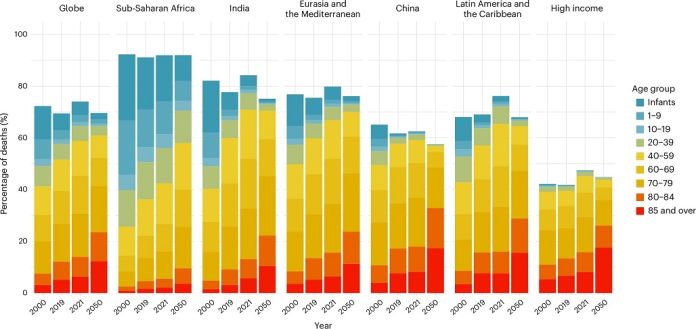
The Huge Economic Cost of Avoidable Deaths: Why Saving Lives Saves Money
Two new studies published in Nature Medicine reveal the significant economic impact of avoidable deaths and the value of reducing them.
These studies, conducted by a global research team, show that preventing avoidable deaths could greatly benefit the global economy.
The first study, co-authored by Diego S. Cardoso, an assistant professor at the University of Illinois Urbana-Champaign, estimates that in 2019 alone, 40 million deaths worldwide were avoidable.
These are deaths that could have been prevented or delayed if people had access to the best health care available.
The economic value of reducing these deaths is equivalent to 23% of the global income for that year. This shows that improving health care worldwide could lead to enormous economic gains.
Cardoso explains that the findings highlight how investing in better health care and prevention programs could bring substantial financial benefits.
By reducing avoidable deaths, countries could save money and boost their economies. This information encourages policymakers to prioritize health care spending, as it could result in long-term economic improvements.
The second paper builds on this research by focusing on deaths caused by noncommunicable diseases (like heart disease, diabetes, and cancer) and injuries. It explores how reducing these specific types of deaths can lead to financial benefits in different regions of the world.
The study provides a framework to help policymakers compare the economic value of reducing avoidable deaths with other sectors, allowing them to make better decisions about where to invest.
Both studies highlight the importance of reducing avoidable deaths, not just to save lives but also to strengthen economies. They emphasize that improving global healthcare systems could bring major economic benefits, and they encourage policymakers to invest in health as a way to promote overall economic growth.
If you care about wellness, please read studies about nutrients that could combat inflammation in older people, and essential foods for healthy aging.
For more health information, please see recent studies about the link between processed foods and chronic diseases, and a simple diet change for a healthier life after 65.
Source: UIUC.



